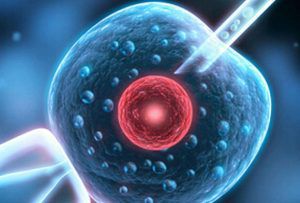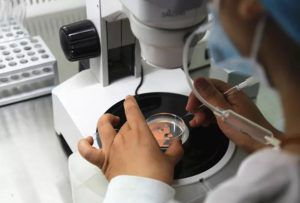In vitro fertilization (IVF) technology has provided hope to many families facing infertility struggles. With its advanced medical technology and diverse treatment options, the United States attracts a large number of patients who wish to become parents. However, for those who are new to this field, it is vital to understand the cost components of IVF in order to be well prepared for the treatment.
Cost components of in vitro fertilization
The cost of IVF usually consists of several components including, but not limited to, the cost of tests, medications, surgery, embryo cultivation, and possible additional costs such as genetic screening and embryo storage. The overall cost usually ranges from $12,000 to $20,000 depending on the hospital and individual needs.
Understanding what each portion of the cost consists of can help patients better assess what they can afford, as well as other expenses they may face during the course of treatment. Below is a detailed analysis of each cost.

Breakdown of IVF cycle costs
The breakdown of costs is especially important during the IVF cycle. The following is a breakdown of the major cost components:
Costs of various tests
The start of an IVF cycle is usually accompanied by a series of physical exams to ensure the patient's reproductive health. Common tests include:
Hormone level testing: assesses a woman's fertility hormone levels, such as FSH, LH and estradiol (E2), and usually costs between $300 and $700.
Semen Analysis: A semen quality analysis is performed on men to check sperm count, motility, and morphology and typically costs between $150 and $300.
Ultrasound of the genitals: the ovarian reserve and uterus of a woman are examined by ultrasound at a cost of between $200 and $400.
Screening for infectious and genetic diseases: to ensure that both parties are free of diseases that could affect the health of the embryo, this part of the procedure usually costs between $500 and $1,000.
Overall, the cost of these tests ranges from approximately $2,500 to $4,500, depending on the hospital's rates and the patient's specific situation.
Cost of in vitro drugs
Medication is a key part of the IVF process and consists of:
Ovulation stimulating drugs: Used to stimulate the ovaries to produce multiple follicles, the total cost usually ranges from $2,000 to $5,000, depending on the type of medication and dosage.
GnRH agonists or antagonists: used to control ovulation and prevent natural ovulation interference therapy, usually costing $500 to $1,000.
HCG injection: triggers the maturation of the egg prior to egg retrieval and typically costs between $150 and $300.
Progesterone support: used after embryo transfer and costs between $200 and $500.
In summary, IVF medications usually cost between 1 TP4T3,000 and 1 TP4T6,000, depending on the patient's needs and the hospital's medication policy.
Cost of in vitro fertilization procedure
The cost of the procedure, which includes the egg retrieval procedure and the embryo transfer procedure, is made up of the following:
Egg retrieval procedure: performed by ultrasound-guided needle puncture, usually done under light or general anesthesia, costs between $3,000 and $5,000.
Embryo transfer procedure: a relatively simple procedure, usually without general anesthesia, costing between $1,000 and $2,000.
All things considered, the cost of the procedure generally ranges from $4,000 to $7,000, depending on the hospital's facilities and skill level.
Embryo cultivation costs
Embryo cultivation is an important part of the IVF process and involves several steps:
In Vitro Fertilization (IVF): Combines the egg with the sperm and usually costs between $3,000 and $5,000.
Embryo monitoring: Embryos are cultured and monitored in a specific environment at a cost of approximately $1,000 to $2,000.
Blastocyst Development: Development of embryos to day 5 to 6, typically ranging from $1,500 to $3,000.
Thus, overall embryo cultivation costs range from approximately 1 TP4T5,500 to 1 TP4T10,000, depending on the cultivation technique and equipment selected.
Third Generation IVF (PGS/PGD) Fees
Third-generation IVF techniques, including preimplantation genetic screening (PGS) and preimplantation genetic diagnosis (PGD), are genetic analyses performed to improve pregnancy success.
PGS Cost: Testing for chromosomal normality of the embryo usually costs between $3,000 and $5,000.
PGD Cost: For testing for specific genetic disorders, the cost may be as high as $6,000 to $10,000, especially when multigene screening is involved.
This investment in costs can significantly improve the chances of healthy babies being born and is an additional cost that many families are willing to bear.
Transportation, accommodation costs
For patients who need to travel to the United States for IVF treatment, transportation and accommodation costs are a necessary part of the equation. These costs may vary depending on the distance traveled and the standard of accommodation:
Transportation costs: Round-trip airfare and local transportation costs, usually budgeted between $500 and $2,000.
Accommodation: Depending on the hotel class, the cost of accommodation ranges from $100 to $300 per night, usually more than one week's stay needs to be arranged and the budget ranges from $700 to $2,000.
Overall, the total cost of transportation and lodging typically ranges from $1,200 to $4,000, depending on the circumstances.
Other expenses
There are some additional costs that may be encountered when undergoing IVF treatment, such as:
Embryo Freezing and Storage: The cost of freezing additional healthy embryos is usually in the range of $600 to $1,500, with annual storage costs of approximately $500 to $1,000.
Counseling Fee: The fee for an initial or follow-up counseling session may range from $200 to $500.
Other medical expenses: such as unanticipated costs for blood tests and medications, usually between 1 TP4T100 and 1 TP4T300.
summarize
Understanding the cost components of IVF in the United States is crucial for every family planning to undergo this treatment. While the total cost may be high, the success rate is also relatively high with the assurance of good medical technology and services. Before deciding on the treatment, patients are advised to make adequate financial preparations and consult a professional organization for more specific information to ensure a smooth process.





